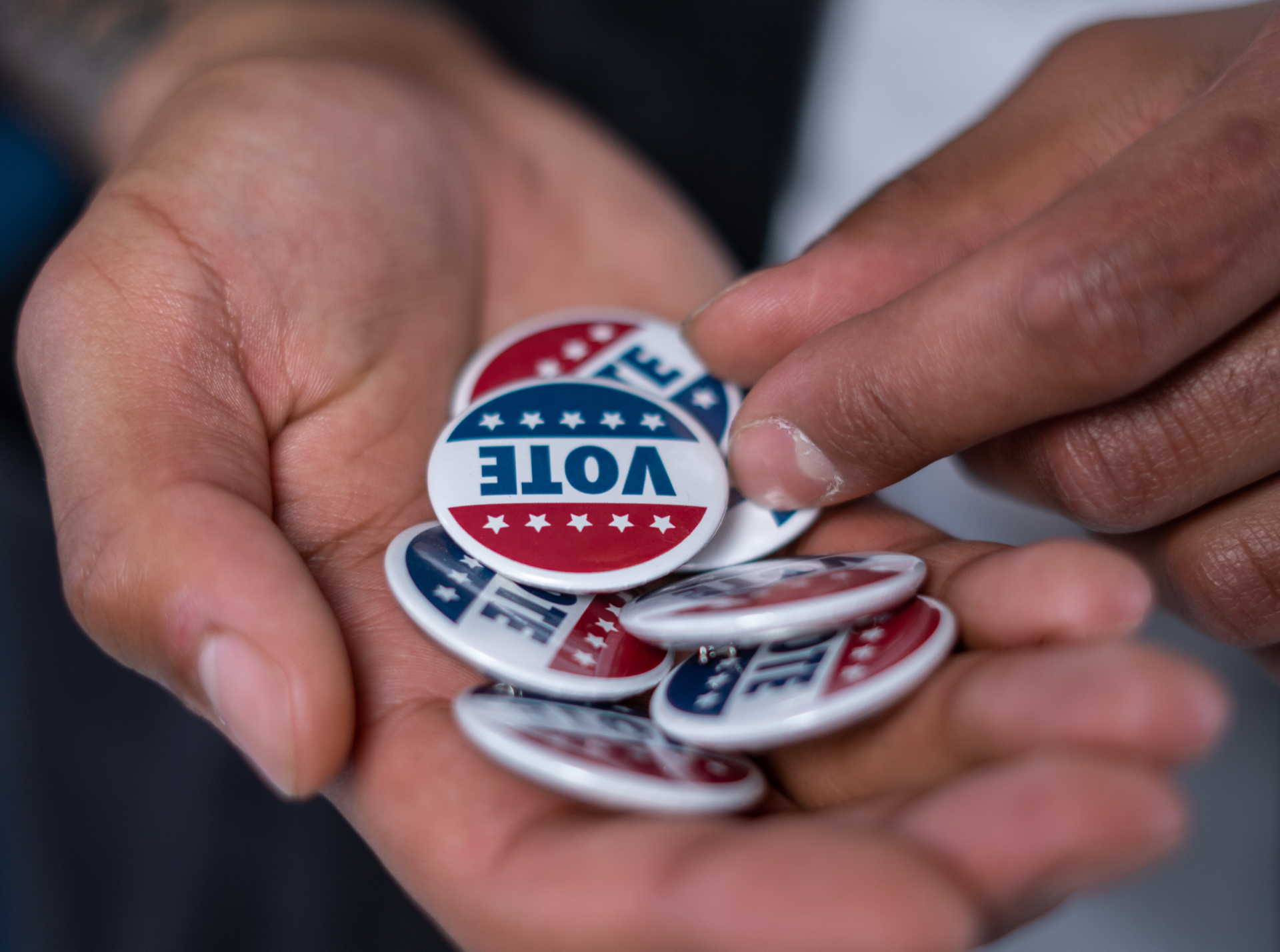“Our state is sweltering right now in the heat of oppression,” Rev. Dr. Terry Mackey passionately implored at a March On For Voting Rights event at Pilgrim Rest Baptist Church last month.
Phoenix residents and citizens across the country are demanding that the U.S. Congress protects voting rights in the wake of Republican lawmakers introducing voting bills that are considered “restrictive” by voting rights activists and by some Democratic lawmakers.
Some consider that these incursions on voting rights will disproportionately impact minority groups and people of color. The rally coincided with the 58th anniversary of Rev. Dr. Martin Luther King Jr.’s March on Washington for Jobs and Freedom. People from all walks of life—white people, Black people, Asian Americans, Latinos—came to the church to support the movement.
READ ALSO: Is blue wave a trend that will stick in Arizona?
“We are standing against the storm that is trying to uproot our rights, our freedoms, our very democracy,” AFL-CIO President Elizabeth Schuler said. “Extremist lawmakers are trying to take our voting rights away and our access to the ballot box away,” she said.
Schuler added that these attacks are “targeted to silence and disenfranchise people of color.” The union president wants legislators to act.
“We’re calling on both Arizona senators, who we helped elect, to do the right thing. Sideline the filibuster. Pass the For the People Act,” she said.
Those in attendance applauded and cheered in agreement.
Sarah Olson, 53, a Phoenix resident and attendee, conveyed her take on voting rights in the state.
“This is a right many in the world don’t have,” Olson said. “Some are not fully understanding the situation and what’s at stake. Our youth must be educated about this issue to combat the curbing of voting rights. The citizens of the state, and the country as a whole, should try to change the hierarchy of politics to favor the voters, not the politicians.”

Marsha Talifarro, 79, said that she disapproves of the GOP’s actions. She says that the bills being introduced around the country are undermining the rights of people of color and minorities. To fight this onslaught, she wants people to petition and call their representatives and senators. This shouldn’t be a one-and-done thing as well. She wants people to try and do it daily.
According to the Brennan Center for Justice, a law and policy institute, 18 states have passed 30 voting laws that it labels “restrictive” since the 2020 presidential election. 49 state legislatures introduced more than 400 bills restricting access to voting. Arizona is one of them.
The Arizona State Legislature introduced several voter restriction bills. One law, HB 2023, a ballot-harvesting law, came under scrutiny during a Supreme Court case in which Attorney General Mark Brnovich argued that it was constitutional while the Democratic National Committee said that it negatively impacted minority communities.
HB 2023 specifically states, “A person who knowingly collects voted or unvoted early ballots from another person is guilty of a Class 6 felony. This section does not apply to a family member, household member or caregiver of the voter.”
The DNC argued that the law will negatively impact Native American communities who rely on third parties to drop off their ballots since mail services are few and are far away. Judge Deborah Ann Begay, a Native American herself, during the March On For Voting Rights rally, made a similar comment, saying that some tribal communities don’t even have physical polling places.
In a 6-3 decision, the Supreme Court sided with Brnovich, stating that HB 2023 did not violate the Voting Rights Act.
David Wells, a principal lecturer and professor of political science at Arizona State University, agrees that these bills and laws are infringing on the voting rights of minorities, but has a different take when it came to the voting laws in Arizona.
“We’re not like Georgia or Texas. We haven’t been really as bad as we could be,” Wells said.
However, he did criticize HB 2023, specifically its potential impact on Native Americans.
“The idea that somebody actually would try to be helpful to them by dropping off their ballot, which could make logical sense, would be committing a felony seemed ridiculous.”
Others argue that these bills are helping with election integrity by preventing voter fraud. They also argue that voting laws should be up to the states, not the federal government. Wells disagreed.
“Jim Crow was up to the states. The idea of states’ rights is not a fantasy of wonderfulness,” he said.
With voting rights becoming a central issue, especially for minority communities in America, Democratic legislators are pushing for a federal solution. They are pushing for the passage of the For the People Act and the John Lewis Voting Rights Advancement Act.
The For the People Act is a bill that, if passed, would expand access to the ballot box, enhance federal support for voting system security, make monetary contributions more transparent and close ethics loopholes, according to U.S. Rep John Sarbanes, sponsor of the bill.
The John Lewis Voting Rights Advancement Act would restore “the full protections of the original, bipartisan Voting Rights Act of 1965,” according to U.S. Sen. Patrick Leahy, the bill’s sponsor. Some of these protections were deemed unconstitutional by the Supreme Court in 2013. Both bills passed the House of Representatives and are now awaiting a vote in the Senate.




